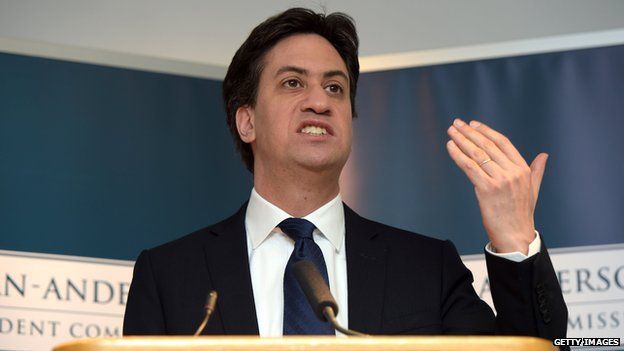Can Labour pay for university fee cut?
- Published
- comments

We may be about to learn how much of a constraint Labour's promise to make no unfunded spending promises really is.
Because I have been told that Labour's leader, Ed Miliband, wants to next month announce an eye-catching policy of cutting maximum university fees for students by a third, from £9,000 to £6,000.
But this would not be cheap: it could cost around £2.5bn a year, based on the £7.6bn that is expected to be lent to students this year to pay for their tuition fees.
In practice the cost might turn out to be less, because the current system imposes a hidden charge on government - in that many thousands of students are expected to be unable to repay their loans over coming years. The IFS calculates this hidden cost to the public purse, the disguised public sector subsidy, as 43.3p for every £1 lent.
This cost, of expected loan write-offs, might be lower under Labour's lower-fee system, since the smaller loans might be more affordable for more students
Doing the sums
Even so, to be a credible commitment - at a time when the public sector deficit is £91bn - Labour would have to find a new tax to cover the significant cost.
So the shadow chancellor, Ed Balls, has been asked to make the sums add up.
As I understand it, he has not yet done so.
Ed Miliband told Labour's conference in the autumn of 2011 that he would cut student fees by a third if the party was in power then. But it has never been a manifesto commitment.
At the time, he said it would be paid for by increasing corporation tax paid by banks - but those funds are no longer available because they have already been tapped by George Osborne.
The preferred option, I am told, is to find an equivalent tax to the raid on the banks. But I understand that Ed Balls and Ed Miliband are also examining whether to replace the system of funding via student loans with a new tax on new graduates - by which those who benefit from a university degree would pay a higher tax rate.
The fee reduction would be aimed at reinforcing Labour's support among younger voters, especially those who turned against the Liberal Democrats when - as part of the government - they abandoned their opposition to fee increases and pushed through an increase in the fee cap from £3,225 to £9,000.
Coherence and credibility
But if the policy is seen as lessening universities' control over their financing, it would risk prompting vocal and potentially embarrassing opposition from university vice chancellors.
The coherence and credibility of both parties' spending and taxing plans are expected to be the main battleground for May's general election.
Because the UK's public-sector deficit remains a high 5% of national income, Labour, Tory and LibDems are all committed to making cuts - although by 2020 Labour would need to make £50bn a year less in cuts than the Tories, based on their respective fiscal formulae and plans.
Even so, Labour has to either cut spending or raise taxes to meet its promise that the so-called current budget - or spending that excludes investment - will be in balance by 2017-18, to which it committed when voting two weeks ago for the government's so-called Charter for Budget Responsibility.
So any new spending promise requires it either to raise taxes or identify some part of the public sector that can be cut.